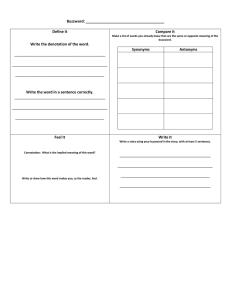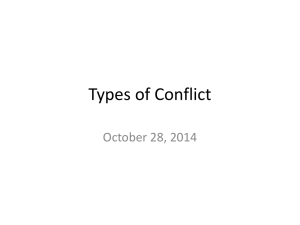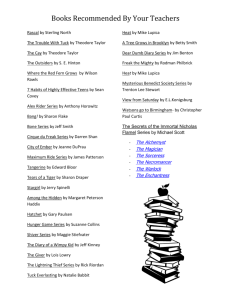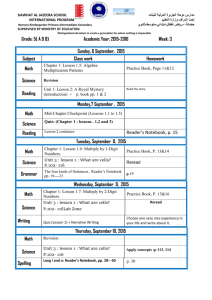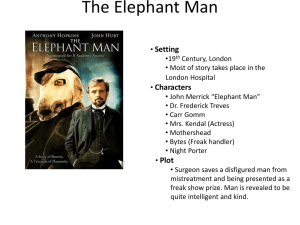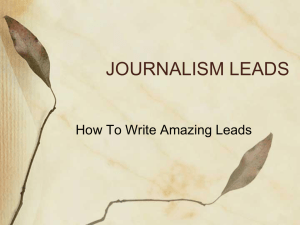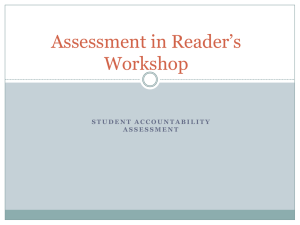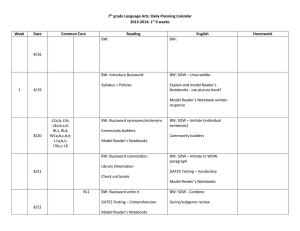Reading Notebook Buzz word and Dialectical Journal examples
advertisement
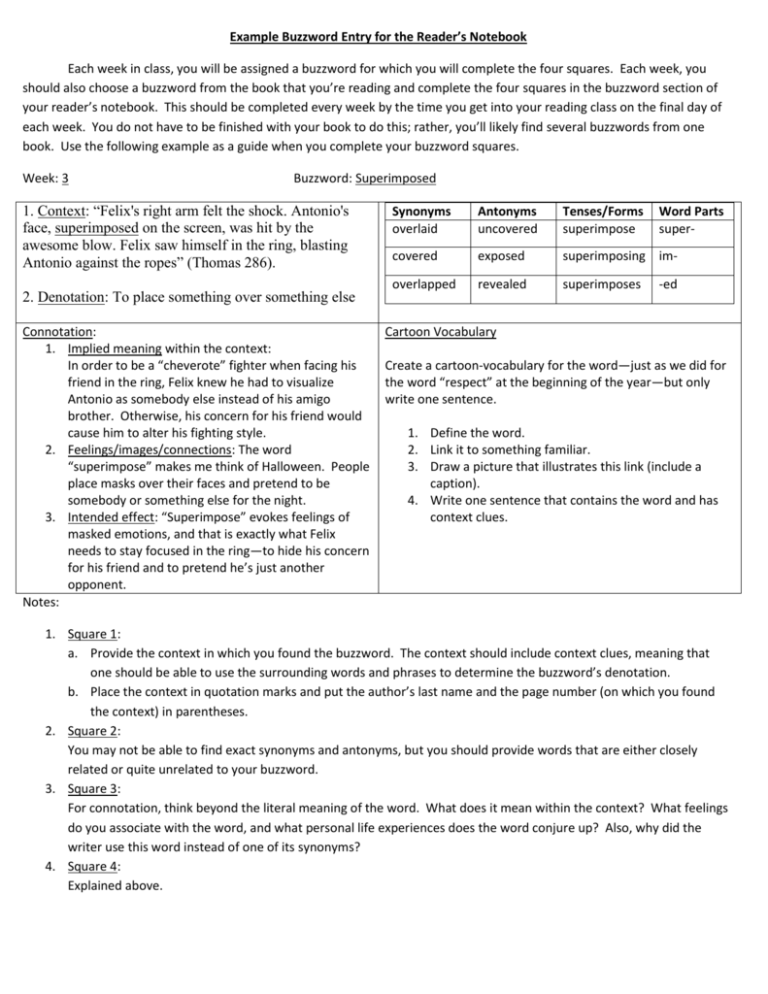
Example Buzzword Entry for the Reader’s Notebook Each week in class, you will be assigned a buzzword for which you will complete the four squares. Each week, you should also choose a buzzword from the book that you’re reading and complete the four squares in the buzzword section of your reader’s notebook. This should be completed every week by the time you get into your reading class on the final day of each week. You do not have to be finished with your book to do this; rather, you’ll likely find several buzzwords from one book. Use the following example as a guide when you complete your buzzword squares. Week: 3 Buzzword: Superimposed 1. Context: “Felix's right arm felt the shock. Antonio's face, superimposed on the screen, was hit by the awesome blow. Felix saw himself in the ring, blasting Antonio against the ropes” (Thomas 286). 2. Denotation: To place something over something else Connotation: 1. Implied meaning within the context: In order to be a “cheverote” fighter when facing his friend in the ring, Felix knew he had to visualize Antonio as somebody else instead of his amigo brother. Otherwise, his concern for his friend would cause him to alter his fighting style. 2. Feelings/images/connections: The word “superimpose” makes me think of Halloween. People place masks over their faces and pretend to be somebody or something else for the night. 3. Intended effect: “Superimpose” evokes feelings of masked emotions, and that is exactly what Felix needs to stay focused in the ring—to hide his concern for his friend and to pretend he’s just another opponent. Notes: Synonyms overlaid Antonyms uncovered Tenses/Forms superimpose Word Parts super- covered exposed superimposing im- overlapped revealed superimposes -ed Cartoon Vocabulary Create a cartoon-vocabulary for the word—just as we did for the word “respect” at the beginning of the year—but only write one sentence. 1. Define the word. 2. Link it to something familiar. 3. Draw a picture that illustrates this link (include a caption). 4. Write one sentence that contains the word and has context clues. 1. Square 1: a. Provide the context in which you found the buzzword. The context should include context clues, meaning that one should be able to use the surrounding words and phrases to determine the buzzword’s denotation. b. Place the context in quotation marks and put the author’s last name and the page number (on which you found the context) in parentheses. 2. Square 2: You may not be able to find exact synonyms and antonyms, but you should provide words that are either closely related or quite unrelated to your buzzword. 3. Square 3: For connotation, think beyond the literal meaning of the word. What does it mean within the context? What feelings do you associate with the word, and what personal life experiences does the word conjure up? Also, why did the writer use this word instead of one of its synonyms? 4. Square 4: Explained above. Example Dialectical Journal Entry for the Reader’s Notebook Each week in class, you also need to quote two interesting passages from the book you’re reading and then provide some thoughtful, interactive commentary that reveals something you’ve learned from what you’ve read. The passages you quote should contain enough information for the reader to be able to understand the general situation. Use the sentence starters and the example below as a guide. Note: your responses should be a minimum of three meaningful sentences, and you must provide parenthetical documentation for the passages you quote. For the first passage each week, be sure to include the author’s last name and page number in parentheses. For the second passage, just place the page number in parentheses. Two quotes and two corresponding responses must be completed (in the dialectical journal section of your reader’s notebook) by the time you enter your reading class on the last day of each week. Sentence Starters: I can’t believe that _____. I was surprised when _____. I predict that _____. If I had to think of a new title for this chapter, it would be ____. I can relate to ____. Quoted reading passage, coupled with parenthetical citation “Freak is scuttling around behind me, keeping out of her way, but when she says that, I can tell he wants to know about his father, if maybe he was a magician” (Philbrick 71). “Everything seems really great, just like Gwen says, except when I lie on my bed it hits me, boom, and I’m crying like a baby. And the really weird thing is, I’m happy (27). I wonder _____. My favorite part was _____. I learned _____. I would like to know more about _____. This reminds me of ______. I still have questions about ______. Week 2 Title: Freak the Mighty Author: Rodman Philbrick Response: thoughtful, interactive commentary Whenever I first read this, I could hardly believe that a genius like Freak would actually think that his father was a magician. I figured he (Freak) would know that Loretta was setting him up for a mean comment. However, after more thought, I realized just how much Freak desires to know about his father. This passage really shows how much of an impact parents have on their children. Even though Freak likely harbors many negative feelings concerning his father, he is naturally curious—curious about why his father left, and (much like Max’s concerns) whether he (Freak) will be a chip off the old block. This reminds me of “Amigo Brothers,” a short story that pits two very close friends against each other. The two have been friends for as long as they can remember, and for just as much time, have longed to become boxing champions. They finally get their chance but have to fight each other, the loser likely missing out on his dream, their emotions naturally rising and falling like a roller coaster. In similar fashion, Max is feeling a barrage of emotions that would rival the amigo brothers’ dilemma. He’s constantly compared to his allegedly murderous father and then begins a friendship with a boy whose mother reveals first-hand information about both his father and mother’s past. Moreover, this woman, who has conjured up some painful feelings within Max, turns out to be rather likeable and quite accepting of Max.
